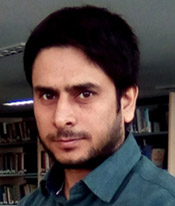Dynamics of ‘Civil-Military’ Relations in India
The burgeoning scholarship on the army’s role in nation building, or the lack of it, is unsurprising. In the modern political order, a nation without its own army is hardly imaginable. A crucial relationship exists between the two, which is also a reason for the uneasiness about the army’s pro-active involvement in the nation-making process. Political sociologists have been uncovering striking causal relationships that demonstrate the crucial role of the army and its internal ‘organisation’, ‘control’ and ‘function’ for the subsisting units of the modern world system: nation-states. Once national consciousness emerges in a society or territorial unit and it is independent, it can find itself competing for security among other nation-states. It will, therefore, have to survive in a world order where its capabilities (military and economic, mainly) matter a great deal. To provide this essential security and guard the nation against all odds, an army becomes essential for the very idea of a nation-state. This unavoidable relationship between the two propelled Charles Tilly to argue about national-state formation in Europe: ‘Military tended, indeed, to promote territorial consolidation, centralisation, differentiation of the instruments of government and monopolisation of the means of coercion, all the fundamental state-making processes. War made the state, and the state made war’.








